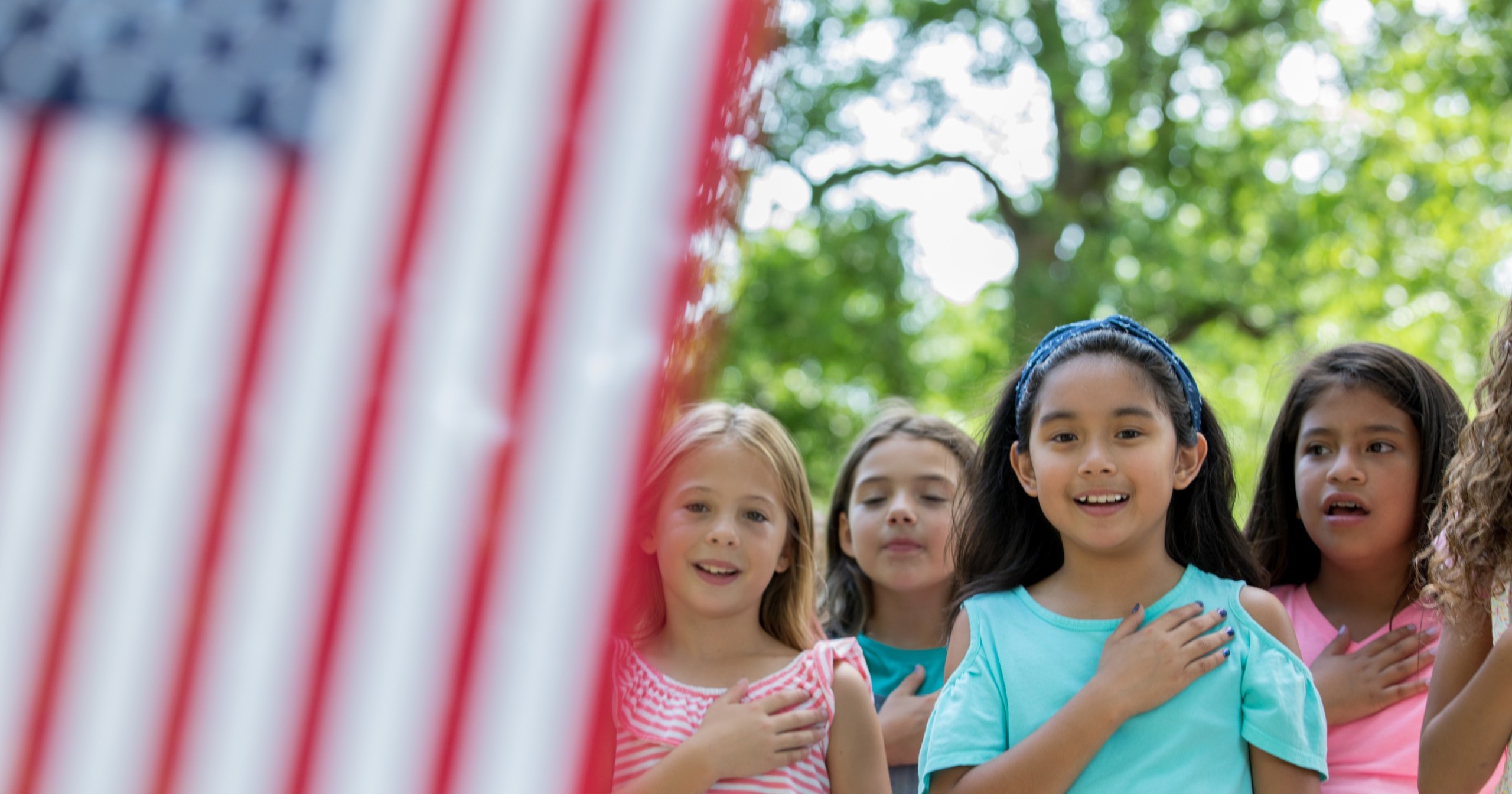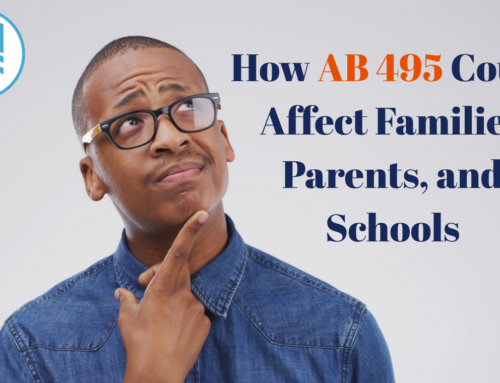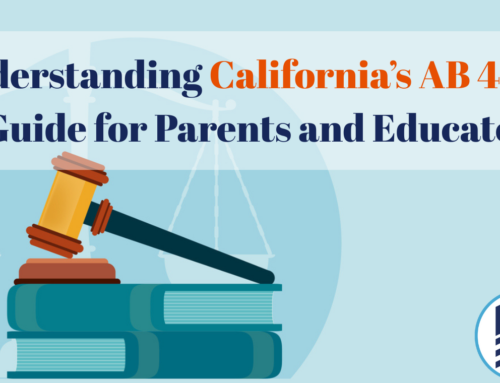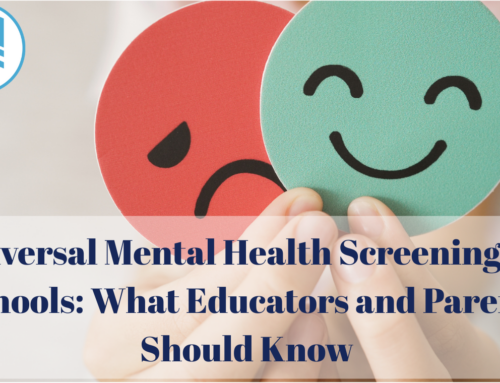
Think of the first time you dropped your child off at school.
What did you imagine for their future? You were probably feeling some bittersweet emotions as you realized how quickly they were growing up, but you were also excited to watch them launch into the world for the first time.
You have glimpses of them bringing home class projects to show you, making new friends, honing their skills, and learning from new experiences. You hope and pray they’ll grow up to be well-educated, kind adults who will be responsible community members.
But right now, you’re in the thick of their education, and you’re dealing with some strange things. Maybe your kids are confused about the founding of America—wait, America was founded in 1619 now? Hold up! Or perhaps your kids have been told that gender is a social construct and there’s really no such thing as male and female. And on it goes…
Help!
It’s no secret that America’s classrooms are political and ideological battlegrounds. Schools everywhere are focused on (or shall we say, endlessly distracted by) societal issues and trends. Where did all this come from? Apart from some key philosophical influences of the last century, there are a few practices in place that have led to the hot political climate inside schools.
What are we dealing with?
Over the last few decades, the education system has shifted away from what the Heritage Foundation calls a “well-rounded elementary and middle-school curriculum, rich in literature, history, geography, science, and the arts that would endow them with the basic assortment of mental furniture—general knowledge, allusions, and idioms—that educated Americans take for granted.”
Of course, what we’re seeing is much more complicated than that.
You’ve probably thought to yourself: I wish they’d keep politics out of school and just teach my kids how to read and write! Maybe you’re angry that agendas are getting pushed at your kids. You’re not wrong to want the system to do what your tax dollars are ultimately paying it to do.
But the reality is that public education is inescapably political.
Jonathan Lancaster for the New Jersey Education Association says, “In every facet, education is political. The outcomes of elections determine your school board’s policies, your school district’s budget, who becomes your superintendent, your content standards, your health care contributions, your time off—even your daily Pledge of Allegiance is dictated by politics. By its very nature of being a public institution, public education is political.”
Skills vs. Content
With that in mind, let’s explore how content is making education even more political.
You’ve probably noticed that schools have gotten good at pumping out young activists and social justice warriors. Why? The key relationship between skills and content has been ignored and then malformed in schools for roughly 30 years. This created a severe gap between the two aspects of education, turning the classroom into a ripe environment for political agendas to grow.
So what’s the difference between skills and content—and why are they central to education? Teacher Bernie Bleske describes skills vs. content like this: “Hammering nails is a skill. Building a house is content….Hammering nails is something everyone can learn….But you can’t just teach people how to hammer nails any more than you can simply teach kids how to read and count. They’ve got to read and count something.”
Therefore, to make curricula more “equitable”, the education system began focusing on skills over content because content is easily “biased.” Bleske continues to explain this case: “We’ve had to build libraries of material, to give to kids, to teach to whole classes, that somehow elude the multiple complications of content yet still inspire passion and care. Old white guys are out. Traditional works, nope. Religion? H**l, no! So many reasons to reject works. The language is too difficult, or the history too fraught, the author controversial, the themes objectionable.”
What happens then? After satisfying an obsession with political correctness through a content purge of all supposedly offensive themes and language, what can be taught to kids?
“Stories that confront bullying and prejudice. Nobody can object to that. The injustice of judgment, yes! Kids love that stuff. Thwarted individuality? Perfect….30 years later we have generations of the best students going to college completely fired up about Social Justice. They were all raised entirely on a diet of it,” Bleske concludes.
And this has led to an evolution of entire classes. The Heritage Foundation points out that there’s been a “quiet revolution in civics education has been gaining ground in recent years, emphasizing student ‘voice’ and ‘agency,’ as well as direct participation in public affairs, politics, and protest. Where civics education has historically concerned itself with ensuring that students know how a bill becomes law, ‘action civics’ seeks to close a ‘civic empowerment gap’ and to reverse the ‘marginalization of youth voice.’”
What are the consequences of this cycle?
So now those social-justice-fed students are the adults running our education system, continuing the cycle.
The politicization of public education has rolled steadily downhill, gaining speed and momentum. And the sad reality is that kids are now caught in the middle of an ideas war.
In an interview with NWEF, Dr. Mark Smith, education commissioner of South Carolina and President of Columbia International University, said that, “We have groups in our nation that couldn’t care less about the children, but they care a lot about idea control. And so now you’ve got groups that are not interested in reading, writing, and arithmetic; they just want to make sure their agenda is in the middle of the education process….The agenda of education has moved so far from the child and has become a political football for self-interest groups.”
This game of political football and the special focus of self-interest groups feeds the cycle. Turns out that politicized education creates hyper-political students who “routinely participate in rallies and demonstrations on controversial issues, such as climate change and gun control. Schools and districts seem less likely to be concerned with presenting a balanced view of contemporary controversies than whether students should be held accountable for skipping class to participate.”
What you can do!
Education is always evolving. What do you do if you don’t like what you see? If you don’t like what your children are being taught?
“There is a foreseeable price to be paid for the reluctance to engage on the foundational question of what the 45 million public school children across the country should know, and leaving it to chance or whim. Doing so risks abandoning the next generation to semi-literacy and, therefore, less than full citizenship,” the Heritage Foundation concludes.
Parents, teachers, and legislators have the responsibility to evaluate educational content and ask themselves two questions:
- Is this content leading farther away from what kids need and should know to successfully function as adults?
- Is it teaching them how to practice healthy citizenship?
Of course, children should be trained to be involved citizens. But they shouldn’t be exploited in a national game of political football.
Teach your kids that there is objective truth, and share with them your values and morals as they grow—so that one day, when they look out into the world and see real injustice and suffering, they can fight with truth and compassion.
Check out our website and blog to find more resources that will help you improve education in America. You can also subscribe to the Noah Webster Educational Foundation for news and helpful information.
Check out our full interview with Dr. Mark Smith here!





[…] like religion or politics, holidays can easily be at the center of controversy in public schools. Even though the winter […]